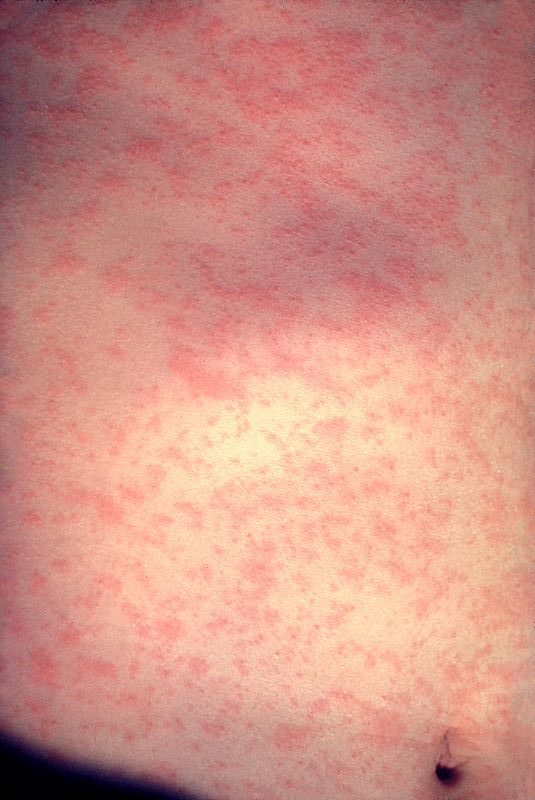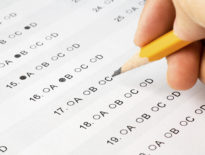
Photo credit: CDC/Dr. Heinz F. Eichenwald
“A lie will go round the world while truth is pulling its boots on.”
— C. H. Spurgeon
In 1998 Andrew Wakefield, a British gastroenterologist, published a study in The Lancet reporting on 12 (remember that number) children with developmental delay, 8 of whom were diagnosed with autism within 4 weeks of receiving the MMR (measles, mumps, rubella) vaccine. The study proposed a link between the MMR vaccine and autism. Other researchers were unable to reproduce these results and find the same link. In 2004, an investigation by a journalist discovered that Wakefield had undisclosed financial conflicts of interest. The investigation found multiple fraudulent and unethical aspects of the 1998 study, leading The Lancet to retract the study in 2010, and leading the British General Medical Council to revoke Wakefield’s license to practice medicine. (I wrote a detailed post at the time of the retraction of the study. Study Linking Vaccines To Autism Not Just Wrong, Intentionally Fraudulent)
Despite the scientific rebuke and the professional disgrace, Wakefield has never recanted. Assisted by celebrities and others with more charisma than qualifications, he has continued to scare parents about vaccine risks.
In an attempt to address these concerns, many studies have attempted to find links between the MMR vaccine and autism. In 2014 a meta-analysis reviewed previous studies of MMR and autism and found no association. Two other studies in 2015 reached the same conclusions. Though most authorities found these studies definitive, critics stated that the MMR vaccine might still increase the risk of autism in children at particularly high risk of autism, even if it does not increase risk in the general population.
In response to these criticisms, a study in Denmark was undertaken that enrolled more children, counted more cases of autism, and followed children for longer than any previous study of MMR and autism. The study followed 657,461 children born in Denmark from 1999 through 2010, and followed them on average for over 7 years. To identify subgroups that might be at higher risk of autism, the study kept track of maternal and paternal age, smoking during pregnancy, the method of delivery, preterm birth, Apgar scores, low birth weight, head circumference, and siblings with autism.
During the study 6,517 children were diagnosed with autism. The risk of autism was similar among vaccinated and unvaccinated children. Importantly, in groups of children at high risk of developing autism, the risk did not change with vaccination status. The results were published this month in the Annals of Internal medicine, along with a summary written for the public. The authors concluded that “even minute increases in autism risk after MMR vaccination are unlikely”.
So now, a fraudulent study citing 12 patients has been debunked by multiple studies, most recently one following over 600,000 kids and over 6,000 kids with autism. Even a tiny effect of MMR vaccine on autism would have been disclosed by this study. But will this convince anybody?
An associated editorial expressed the concern that we now live in a world in which evidence has little persuasive value, and wonders whether the resources spent on this study might better have been spent studying something else. After all, those who care about evidence were convinced before this study; those who don’t care about evidence will not be convinced now.
Meanwhile measles outbreaks in New York, Washington, Texas and Illinois are spreading among communities with lower vaccination rates. We live in a society in which expertise carries less authority than ever before, and scientific findings are met with skepticism. Public health officials and doctors will have to find other ways of communicating with and reassuring vaccine skeptics. Perhaps our side needs our own celebrities.
Learn more:
One More Time with Big Data: Measles Vaccine Doesn’t Cause Autism (NY Times)
MMR vaccine does not cause autism, another study confirms (CNN)
Measles Outbreak Grows to 214 Cases in New York City (Wall Street Journal)
The MMR Vaccine Is Not Associated With Risk for Autism (Annals of Internal Medicine summaries for patients, free without subscription)
Measles, Mumps, Rubella Vaccination and Autism: A Nationwide Cohort Study (Annals of Internal Medicine original research, free without subscription)
Further Evidence of MMR Vaccine Safety: Scientific and Communications Considerations (Annals of Internal Medicine editorial, free without subscription)
Measles (Centers for Disease and Prevention)
Andrew Wakefield (Wikipedia)
Some of my previous posts about MMR and measles:
Study Linking Vaccines To Autism Not Just Wrong, Intentionally Fraudulent (2011)
Measles Makes A Comeback (2014)
Mickey, Minnie, Measles (on the measles outbreak in Disneyland in 2015)

